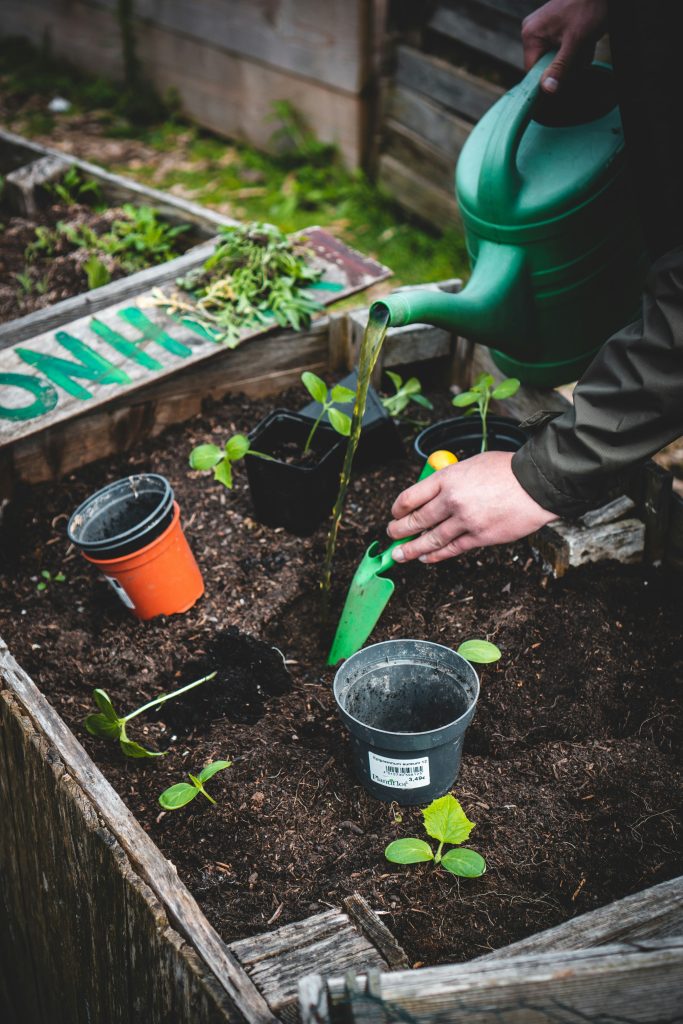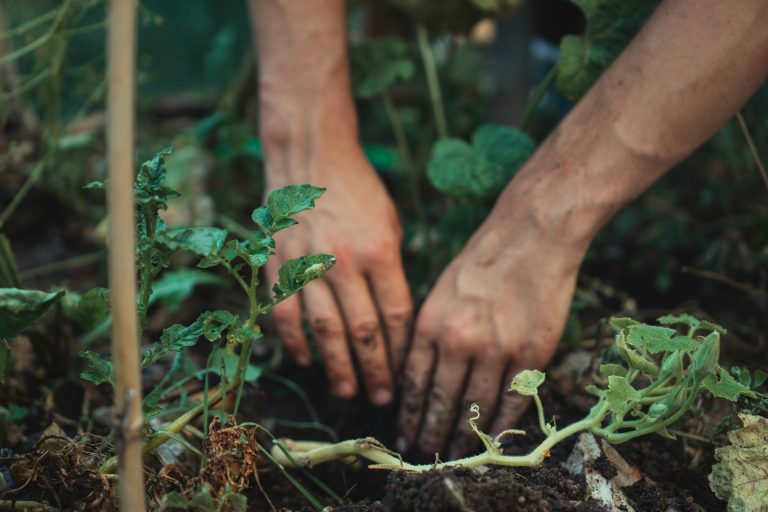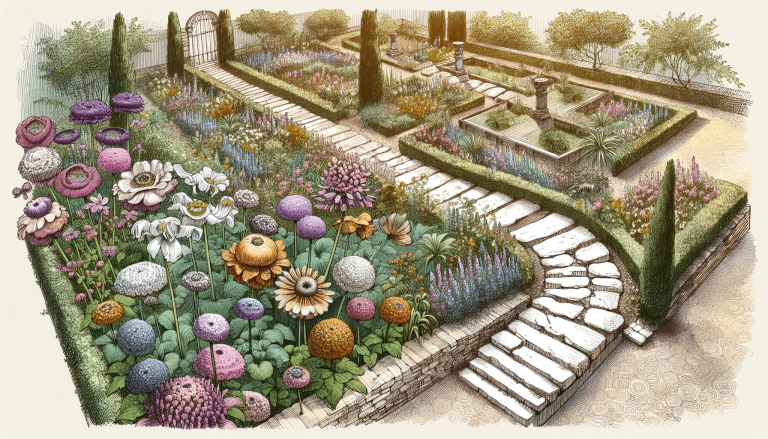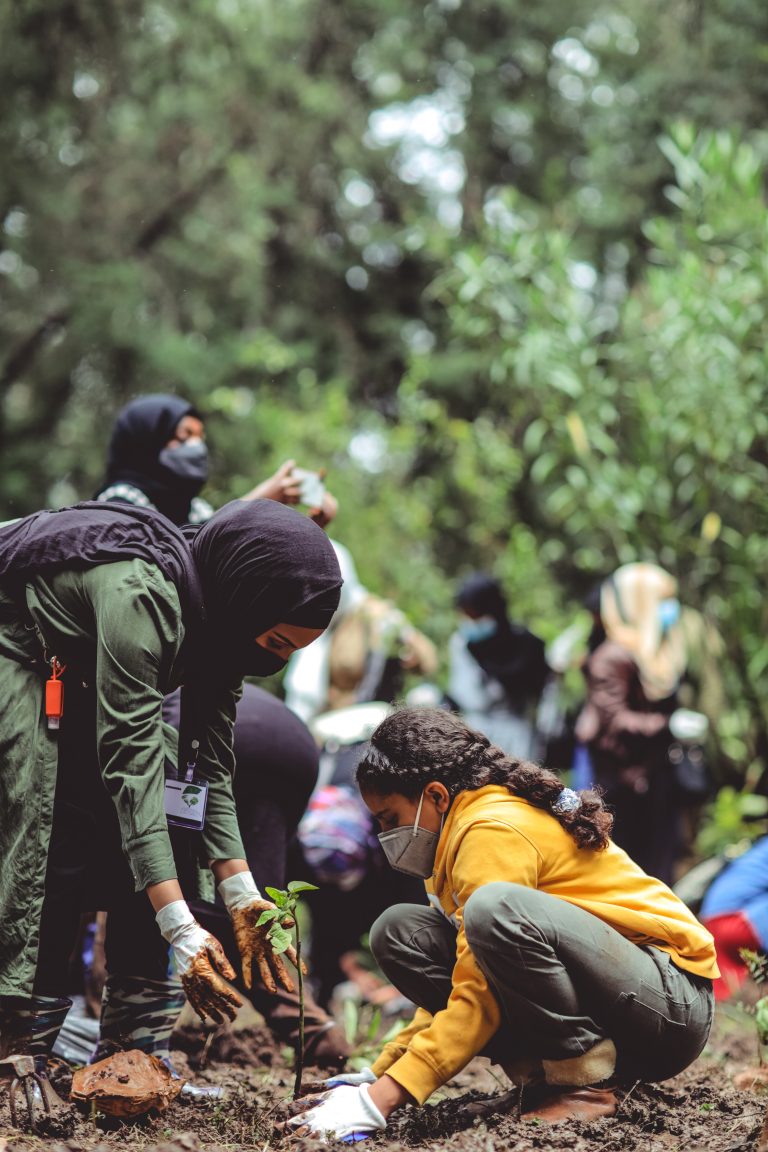If you’ve always dreamed of cultivating a lush and vibrant garden in the UK, but don’t want to rely on harmful pesticides and synthetic fertilizers, you’re in luck. Growing a garden organically in the UK is not only possible but also rewarding and environmentally friendly. With a little know-how and some simple techniques, you can create a thriving oasis of plants and flowers that will make both you and the planet smile. From choosing the right plants to practicing sustainable watering and pest control methods, this article will provide you with the essential tips and tricks to help you successfully grow an organic garden in the UK. So, roll up your sleeves, grab your gardening tools, and let’s get started on this exciting green journey together!
Table of Contents
ToggleChoosing the Right Location
Considering Sunlight Exposure
When choosing a location for your organic garden, one of the crucial factors to consider is sunlight exposure. Most plants require at least six hours of direct sunlight each day to thrive. Take note of any surrounding structures, such as buildings or trees, that may cast shadows on your garden. Ideally, you want to select an area with ample sunlight throughout the day. This will ensure that your plants receive the necessary light energy to photosynthesize and grow healthy.
Assessing Soil Quality
Another essential consideration is the quality of the soil. An ideal organic garden should have well-draining soil that is rich in nutrients. You can assess the soil quality by conducting a simple soil test. Dig a small hole, around six inches deep, and examine the soil’s texture and color. Sandy soil, with larger particles, may drain too quickly, while clay soil, with smaller particles, may retain too much water. Aim for loamy soil, which is a balanced mixture of sand, silt, and clay.
Ensuring Proper Drainage
Proper drainage is crucial to prevent waterlogging, which can lead to root rot and other issues. If the area you have chosen has poor drainage, you can improve it by adding organic matter, such as compost or well-rotted manure, to the soil. This will help to break up compacted soil, allowing water to flow freely. Additionally, you may consider constructing raised beds or using containers with drainage holes to ensure proper drainage in your garden.
Planning and Designing the Garden
Deciding on the Garden Size
Before jumping into the planning process, take a moment to decide on the size of your garden. Consider the available space and your individual gardening goals. Keep in mind that larger gardens require more time and effort to maintain. If you are a beginner or have limited time, you may opt for a smaller garden initially and expand later. Start small and gradually increase the size as you gain experience and confidence in organic gardening.
Creating a Layout
Now that you have determined the size, it’s time to create a layout for your garden. Consider factors such as accessibility, ease of maintenance, and aesthetic appeal. Divide your garden into different sections based on plant families or types. This will help with crop rotation, pest management, and overall organization. Leave enough space between the rows and plants to allow for airflow and prevent overcrowding.
Choosing Suitable Plants and Seeds
Selecting suitable plants and seeds is vital for a successful organic garden. Research plants that are well-suited to your climate and growing conditions in the UK. Native plants tend to thrive more easily and require less fuss. Choose organic or heirloom seeds that have not been genetically modified or treated with chemicals. Look for varieties that are disease-resistant and have a higher chance of success in your specific location.
Preparing the Soil
Clearing the Area
Before preparing the soil, it’s essential to clear the area of any existing vegetation or debris. Remove weeds, rocks, and any other obstacles that may hinder the growth of your plants. This allows for a clean slate and gives your garden a fresh start.
Testing pH Levels
Once the area is clear, it’s beneficial to test the pH levels of your soil. Different plants thrive in different pH ranges, so it’s important to know the acidity or alkalinity of your soil. You can purchase a pH testing kit from your local garden center or use a pH meter. Aim for a slightly acidic to neutral pH level, around 6.0 to 7.0, as most plants prefer this range.
Adding Organic Matter
To improve the fertility and structure of your soil, add organic matter such as compost or well-rotted manure. This provides essential nutrients for your plants and improves moisture retention. Spread a layer of organic matter over the cleared area and work it into the soil using a garden fork or tiller. This will help create a nutrient-rich environment for your plants to thrive.
Planting and Maintenance
Sowing Seeds or Transplants
Now comes the exciting part – planting your organic garden! Depending on the type of plants you’ve chosen, you can sow seeds directly into the soil or start with transplants. Follow the instructions on the seed packets or consult gardening resources for optimal planting times and methods. Ensure you plant your seeds or transplants at the appropriate depth and spacing, as this will promote healthy growth and prevent overcrowding.
Proper Spacing and Depth
Proper spacing and depth are essential to ensure that your plants have enough room for their roots to expand and access nutrients. Crowded plants can lead to competition for resources and increased susceptibility to diseases and pests. Follow the guidelines provided with your seeds or transplants for the recommended spacing and planting depths.
Watering and Mulching
Watering is crucial for the overall health of your plants. It’s best to water deeply and infrequently to encourage deep root growth. Irrigate your garden regularly, especially during dry periods, and try to avoid overhead watering to minimize the risk of diseases. Applying a layer of organic mulch, such as straw or wood chips, around your plants helps to conserve moisture, regulate soil temperature, and suppress weed growth.
Fertilizing with Organic Options
Organic gardening relies on natural methods to fertilize plants and promote healthy growth. Consider using organic fertilizers, such as compost, worm castings, or seaweed extract, to provide essential nutrients to your plants. These options are free from synthetic chemicals and are better for the environment. Apply fertilizers according to the specific needs and stage of growth of your plants.
Pest Control
Identifying and Monitoring Pests
Keeping pests under control is essential in organic gardening. Start by learning how to identify common garden pests in the UK, such as aphids, slugs, and snails. Regularly inspect your plants for any signs of damage or infestations. Monitoring pests allows you to take action promptly and prevent their populations from spiraling out of control.
Using Natural Repellents
There are several natural repellents you can use to discourage pests from damaging your plants. For example, planting marigolds, garlic, or chives near vulnerable plants can deter insect pests. You can also make homemade repellent sprays using ingredients like neem oil, garlic, or soap. These natural methods are safer for the environment and do not pose a risk to beneficial insects.
Introducing Beneficial Insects
Another effective pest control strategy is to introduce beneficial insects into your garden. Ladybugs, lacewings, and praying mantises are examples of insects that prey on garden pests. Create a welcoming environment for these beneficial insects by providing a water source, shelter, and companion plants that attract them. By promoting a balance of predators and pests, you can naturally control unwanted insects in your garden.
Weed Management
Mulching to Prevent Weeds
Weeds can quickly take over a garden if left unattended. To prevent weed growth, apply a layer of organic mulch around your plants. This helps to smother weed seeds and prevents them from receiving enough sunlight to germinate. Organic mulches not only suppress weeds but also conserve soil moisture and improve soil health as they decompose.
Hand-Weeding
Despite preventative measures, some weeds may still find their way into your garden. Regularly inspect your garden and manually remove any weeds that sprout. Be sure to remove the entire weed, including the roots, to prevent regrowth. The best time to hand-weed is when the soil is slightly damp, as weeds are easier to uproot.
Using Organic Weedkillers
In cases where hand-weeding is not sufficient, you may consider using organic weedkillers. Homemade solutions like vinegar, boiling water, or saltwater can be effective at killing weeds. Exercise caution when using these options, as they can also harm your desirable plants if applied excessively. It’s important to use organic weedkillers sparingly and precisely to minimize any negative impact on your garden.
Harvesting and Preserving
Knowing When to Harvest
Harvesting at the right time ensures optimal flavor, texture, and nutritional value in your produce. Different plants have different indicators of ripeness, such as color, size, or texture. Research the particular fruits, vegetables, or herbs in your garden to understand the signs of maturity. Harvest in the morning when the flavor and freshness of the produce are at their peak.
Proper Harvesting Techniques
To ensure the continued productivity of your plants, it’s important to employ proper harvesting techniques. Use clean, sharp pruners or shears to minimize damage to your plants. Cut or pick vegetables and fruits carefully to avoid bruising or breaking the stems. Take care not to disturb the surrounding foliage or disturb the roots of neighboring plants.
Preservation Methods
If you have an abundant harvest, you can preserve your organic produce for later use. Popular preservation methods include canning, freezing, drying, fermenting, and pickling. Each preservation method has specific requirements, so make sure to follow proper instructions for each technique. By preserving your harvest, you can enjoy your organic produce throughout the year and reduce food waste.
Dealing with Common Challenges
Dealing with Slugs and Snails
Slugs and snails can be a common nuisance in UK gardens. To deter these pests, you can employ various tactics. Create physical barriers such as copper tape or eggshells around vulnerable plants, as slugs and snails dislike crossing these surfaces. Beer traps, made by sinking containers into the ground and filling them with beer, can also help trap and eliminate these pests.
Preventing Diseases
To prevent the spread of diseases in your garden, practice good hygiene habits. Avoid overwatering, as it can create a damp environment that encourages fungal diseases. Provide adequate airflow by spacing plants appropriately and ensuring they are not overcrowded. Remove any infected plant material promptly to prevent the spread of diseases to healthy plants.
Managing Temperature Extremes
In the UK, extreme weather conditions can be challenging for gardeners. Protect your plants from temperature extremes by providing shade during hot summers and using row covers or cloches to protect them from frost in colder seasons. Mulching can also help regulate soil temperature and protect plant roots from temperature fluctuations. Stay informed about the specific temperature requirements of your plants to provide appropriate care.
Maintaining Biodiversity
Choosing Native Plants
Incorporating native plants in your organic garden is an excellent way to promote biodiversity. Native plants are adapted to local conditions and provide food and habitat for native wildlife. They also require fewer resources, such as water and fertilizer, reducing your environmental footprint. Seek out native plant species that are well-suited to your region and incorporate them into your garden to support local ecosystems.
Creating Habitats for Wildlife
Invite wildlife into your garden by creating habitats that provide food, water, shelter, and nesting sites. Install bird feeders, bird baths, and butterfly houses, and include plants that attract pollinators and beneficial insects. Avoid using chemical pesticides or herbicides that may harm or deter wildlife. By embracing wildlife in your garden, you contribute to the overall biodiversity and ecological balance.
Practicing Crop Rotation
Implementing crop rotation is a sustainable gardening practice that helps maintain soil health and prevent the buildup of pests and diseases. Rotating crops means changing the location of plant families from year to year. This prevents pests and diseases that favor specific crops from accumulating in the soil. Plan your garden layout accordingly and follow a crop rotation schedule to maximize the health and productivity of your organic garden.
Joining Organic Gardening Communities
Local Gardening Groups
One of the best ways to enhance your organic gardening journey is to join local gardening groups. These organizations typically have experienced gardeners who can offer valuable advice and guidance specific to your region. Networking with fellow gardeners allows you to learn from their experiences, swap gardening tips, and even share plant varieties or seeds. Local gardening groups often organize workshops, meetings, and garden tours, providing excellent opportunities for learning and community engagement.
Online Forums and Websites
The internet is a treasure trove of information for organic gardeners. Joining online forums and visiting trusted gardening websites can provide you with a wealth of knowledge and advice. These platforms allow you to connect with gardeners from all over the world, exchange ideas, and seek solutions to specific gardening challenges. Be sure to explore reputable websites and forums dedicated to organic gardening to ensure you receive accurate and reliable information.
Organic Gardening Courses
For those looking to deepen their understanding of organic gardening, consider enrolling in organic gardening courses. Many educational institutions, gardening centers, and organizations offer courses that cover a range of topics, from basic organic gardening principles to more advanced techniques. These courses provide structured learning and hands-on experience, allowing you to gain the skills and knowledge needed to be a successful organic gardener.
In conclusion, growing a garden organically in the UK requires careful consideration of factors such as sunlight exposure, soil quality, and drainage. Planning and designing your garden layout, choosing suitable plants and seeds, and preparing the soil are crucial steps to ensure a successful organic garden. Planting and maintenance involve sowing seeds or using transplants, proper spacing and depth, watering and mulching, and fertilizing with organic options. Pest control and weed management strategies, such as identifying pests, using natural repellents, and practicing weed prevention techniques, are essential for maintaining a healthy garden. Knowing when to harvest, employing proper harvesting techniques, and preserving your produce contribute to a bountiful harvest. Dealing with common challenges, maintaining biodiversity, and joining organic gardening communities further enhance your organic gardening journey. With dedication and knowledge, you can enjoy the rewards of an organically grown garden in the UK.









